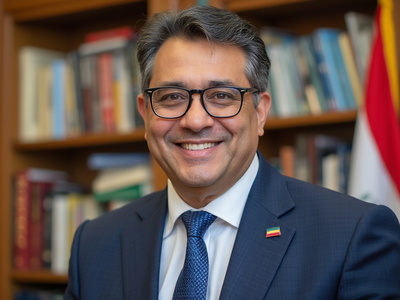The Trump administration has rescinded legal status for more than 530,000 migrants hailing from four nations.
The temporary protections for migrants hailing from Cuba, Haiti, Nicaragua, and Venezuela will conclude on April 24, 2025.
The administration of President Donald Trump has unveiled plans to rescind the temporary legal status of around 530,000 migrants from Cuba, Haiti, Nicaragua, and Venezuela.
This action, outlined in a notification from the Department of Homeland Security (DHS), will end the two-year humanitarian parole granted by the prior administration, effective April 24, 2025. The individuals impacted entered the United States under the Cuba, Haiti, Nicaragua, and Venezuela (CHNV) humanitarian parole program, which was launched in October 2022. This initiative permitted migrants from these nations to live and work in the U.S. for up to two years, contingent upon having American sponsors.
According to DHS, the initial purpose of the CHNV program was to bolster border security and diminish illegal immigration by providing legal entry routes.
Nevertheless, the current administration has determined that the reasons for such parole are no longer applicable.
As a result, migrants lacking a lawful reason to remain in the United States must leave before the deadline of April 24.
Failure to comply may lead to removal proceedings.
The CHNV program enabled the arrival of more than 530,000 individuals: about 213,000 Haitians, 120,700 Venezuelans, 110,900 Cubans, and 93,000 Nicaraguans.
Alongside the termination of the CHNV program, the administration is contemplating the revocation of temporary legal status for roughly 240,000 Ukrainians who sought asylum in the U.S. during the ongoing conflict with Russia.
The DHS has suggested that some individuals presently enrolled in the CHNV program may be allowed to remain in the U.S. on a case-by-case basis.
However, individuals without a lawful basis to remain are urged to leave before their parole termination date to prevent enforcement actions.
This policy change marks a notable shift in U.S. immigration policy, affecting hundreds of thousands of migrants who have built their lives in the country under the humanitarian efforts of the previous administration.
This action, outlined in a notification from the Department of Homeland Security (DHS), will end the two-year humanitarian parole granted by the prior administration, effective April 24, 2025. The individuals impacted entered the United States under the Cuba, Haiti, Nicaragua, and Venezuela (CHNV) humanitarian parole program, which was launched in October 2022. This initiative permitted migrants from these nations to live and work in the U.S. for up to two years, contingent upon having American sponsors.
According to DHS, the initial purpose of the CHNV program was to bolster border security and diminish illegal immigration by providing legal entry routes.
Nevertheless, the current administration has determined that the reasons for such parole are no longer applicable.
As a result, migrants lacking a lawful reason to remain in the United States must leave before the deadline of April 24.
Failure to comply may lead to removal proceedings.
The CHNV program enabled the arrival of more than 530,000 individuals: about 213,000 Haitians, 120,700 Venezuelans, 110,900 Cubans, and 93,000 Nicaraguans.
Alongside the termination of the CHNV program, the administration is contemplating the revocation of temporary legal status for roughly 240,000 Ukrainians who sought asylum in the U.S. during the ongoing conflict with Russia.
The DHS has suggested that some individuals presently enrolled in the CHNV program may be allowed to remain in the U.S. on a case-by-case basis.
However, individuals without a lawful basis to remain are urged to leave before their parole termination date to prevent enforcement actions.
This policy change marks a notable shift in U.S. immigration policy, affecting hundreds of thousands of migrants who have built their lives in the country under the humanitarian efforts of the previous administration.











